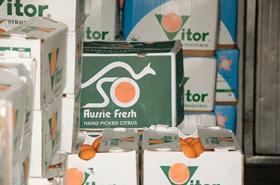
Indonesia is on the verge of closing its doors to all citrus imports apart from lemons for the July to September period, according to reports circulating in the local trade.
The Indonesian government is in the early stages of issuing fruit import permits under its quota system for the July-December semester, and these are not expected to be announced until mid to late June. Government authorities have not announced or issued written confirmation of any ban on citrus imports for the period.
However, Indonesian fruit importers, who must submit applications for the products and volumes they plan to import for the period before securing permits, say they have received verbal indications from government authorities that no citrus imports (apart from lemons) will be admitted during the July to September period.
“What we're told is that all types of imported citrus will only be allowed to enter and apply for arrival between October and December. In other words, citrus imports will not be released for the arrival period of July to September,” said a spokeperson for Assibssindo, Indonesia’s association of fresh fruit and vegetable importers and exporters.
The government’s reported move to suspend imports is driven by the Department of Agriculture and is apparently aimed at protecting local Indonesian citrus producers, according to the Assibssindo spokeperson. But he pointed out that Indonesia’s citrus growers only produce tangerines with a bi-coloured green/orange skin. “Other types of citrus such as mandarins and grapefruit cannot be grown in Indonesia due to the tropical climate and high humidity,” the spokesperson told Asiafruit.
Lemons were originally included in the planned import suspension but the source told Asiafruit that the Department of Agriculture advised Assibssindo late on Thursday 28 May that lemons would be exempted. 'Lemon imports will be allowed to continue for arrival between July and December,' the source said.
Southern Hemisphere citrus shippers such as Australia, South Africa and Argentina stand to be worst-affected by any suspension of imports during the July-September period as their seasons are in full flow then.
Australia is particularly exposed. Indonesia ranked as the number one export market by volume for Australian mandarins in 2014 with a value of A$8.6m, which represented 20 per cent of total exports, according to analysis from Fresh Intelligence Consulting. The South East Asian country was also an important market for Australia’s oranges, garnering A$5.1m and representing around 4 per cent of total exports. Total Australian citrus exports to Indonesia reached almost 11,000 tonnes in 2014, with more than 6,000 tonnes entering the market in the July-September quarter.
“Our [citrus] trade has remained steady with Indonesia, showing an 11 per cent increase last year,” said Michelle Christoe, CEO of the Australian Horticultural Exporters Association. “The trade is an important one for Australia. To be locked out between July and September would be the mandarin season gone.”
Christoe said that while citrus was the primary concern, Indonesian importers had indicated that other commodities may be affected, but she also stressed that no decision had been confirmed in writing by Indonesian authorities. The total value of Australian fresh produce exports to Indonesia topped around A$60m last year, led by citrus, table grapes and potatoes.
Argentina also shipped 7,506 tonnes of citrus to Indonesia in 2014, according to analysis from Fresh Intelligence Consulting. Volumes were almost overwhelmingly made up of mandarins, around 4,000 tonnes of which entered the market between July and September. South Africa also sent 5,264 tonnes of oranges to Indonesia last year, almost 3,000 tonnes of which arrived in the same quarter.
But the Assibssindo spokesperson also told Asiafruit that Southern Hemisphere citrus shippers would not be the only ones affected by a suspension of imports.
“It’s really going to affect Indonesian hoteliers, restaurants and catering businesses and most of all fresh juice consumers and the government’s income from import taxes,” he said. “The worst is yet to come as it would open opportunities for smuggling.”






No comments yet